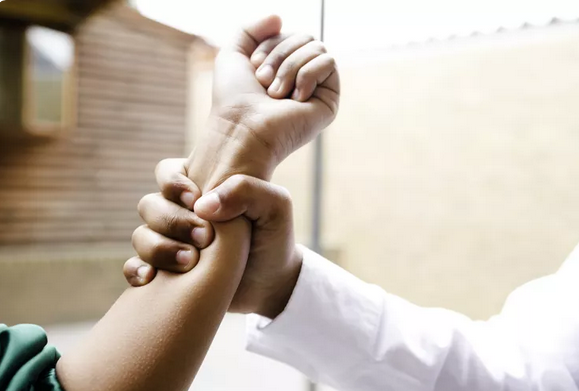By Fahdia Msaka
South Africa has a long history of fighting for equality in education. The racial segregation that lasted from 1948 to 1994 also enforced segregation in schools. This policy resulted in the stark difference in educational opportunities we still see today.
The end of Apartheid in 1994 marked a new beginning for South Africa, especially in the education sector. The ruling party that Nelson Mandela led had a strong belief that education was one of the biggest keys to change. Nearly two decades post-Apartheid, we have come to learn that inequality in education is not limited to racial disparities. It includes cultural, religious, and socioeconomic dimensions. We have begun to see the extent of the challenges these barriers bring into the classroom.
There are many trending videos of students and even parents treating teachers horribly in South Africa. The Department of Education tends to focus on dealing with the reasons why the child is acting this way. Young people are the driving force of any country, but what about the teachers, who are also a crucial part of the country’s growth?
In Makhanda, in one of the local primary schools, a minor has been accused of several alarming acts against other young learners. The child’s behavior was brought to the attention of the School Governing Body (SGB) due to the severity of the issue. In one of the meetings held, the Eastern Cape Department of Education, as well as a social worker, were present to address the situation. The parent of the minor responded in a disagreeable manner in defence of her child despite the opinions of the professionals who were assigned to address the situation.
Malibongwe Mtima, Media Liaison and Public Relations at Eastern Cape Department of Education says, “We have opted to suspend the student and his friend, and we have referred them to an institution that will help them with their antisocial behavior. Number two, we have tried to dispatch psychologists and social workers not only to the student but also to the family.”
The mandate of the Department of Basic (DBE) is to monitor the standards of the provision, delivery, and performance of education annually or at other specified intervals throughout South Africa, with the objective of assessing compliance with the provisions of the Constitution of the Republic of South Africa of 1996 and with national education policy. The South African Department of Basic Education has established a Safe Schools Call Centre that educators and parents can contact to report incidents of violence or misconduct in schools.
There are also in place to protect not only students but also teachers from threatening acts. The Protection from Harassment Act 2011 provides a legal framework to protect individuals from harassment and intimidation. Teachers in South Africa often join teacher unions such as the South African Democratic Teacher’s Union (SADTU). These unions can provide legal support and guidance to teachers facing challenges related to student misconduct.
It’s important for teachers to be familiar with their school’s specific policies and procedures for handling student misconduct, as these may vary from one institution to another. Additionally, teachers should report serious incidents to school management, involve parents or guardians when necessary, and seek support from relevant authorities to ensure that student behavior that threatens the learning environment is appropriately addressed.
This is a heartbreaking reality that educators face daily. In public schools located in areas with high crime rates, the student not only brings himself but their undesirable living situations to the classroom, sometimes endangering the lives of teachers.


